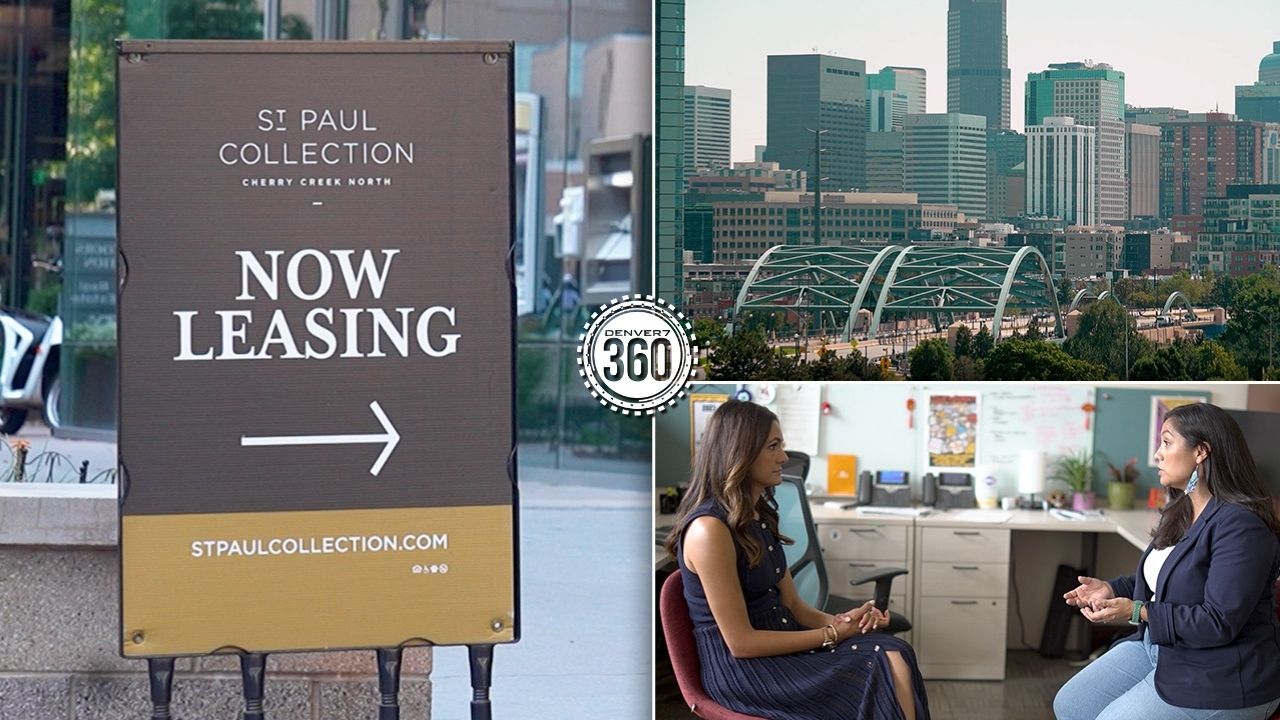DENVER — When traveling through downtown Denver, it doesn't take long until you spot a "for lease" sign in front of an apartment complex.
There are plenty of options for new, amenity-rich apartments, with cranes in the skyline building even more. But are there too many options?
"Developers have been very interested in building rental housing here in Colorado, and the supply of new housing has exceeded consumer demand," said Andrew Hamrick, senior vice president of government affairs for the Colorado Apartment Association.

Overall, that's led to a historically high vacancy rate of 6.4% in the Denver metro area as of the second quarter of 2025. The vacancy rate, however, is down from last quarter, when it was 7%.
"Vacancy rates are very good for consumers because it means there's a lot of suppliers out there competing for their business," Hamrick said. "They do lots of things to entice you to come in."
While complexes are offering concessions to sweeten the deal for renters, there are even more apartment projects being built, with thousands of units set to come online in the coming years.
"To a large extent, the units that are coming online today are the ones that were thought up, planned, originated between 3-4 years ago," Hamrick said.

Going back a few years, data shows a huge spike in apartment project permits in 2022. So what happened in 2022?
"You [couldn't] require them to build affordable housing within the development that they're doing," said Denver City Council Member Serena Gonzalez-Gutierrez. "So what [House Bill 21-1117] did was it lifted that and said, 'Yes, you can.'"
Before joining the Denver City Council, Gonzalez-Gutierrez served in the state legislature and co-sponsored House Bill 21-1117, which allows local government to require new apartments to have a certain number of affordable units.
"There's a lot of people who have lived here a long time and want to continue to live here, but our city has become more and more unaffordable," Gonzalez-Gutierrez told Denver7.

The law went into effect in 2022, but there was a rush of apartment applications filed by developers and builders hoping to get in before the requirements took effect in Denver.
"My work group had over 1,500 development applications in for review," said Emily Collins, the Denver Expanding Housing Affordability (EHA) administrator.
The City of Denver ended up granting a grace period, and then a second grace period, to allow all of those applications to go through the system without any affordability requirements. Denver7's Danielle Kreutter asked Collins if she believes the number of apartment complexes coming online without an affordability piece is concerning.
"I don't think it's concerning, right? We still need and want that development still. It's supply, right? The more units that you provide, hopefully it does bring down the cost of rent, gives people options to move around, as well," said Collins. "To be clear, they are still contributing to our affordable housing goals. They're just paying a linkage fee that was subject to the previous system."

The linkage fee was charged to any new developments and then used to fund different affordable housing efforts. Kreutter asked Gonzalez-Gutierrez about the city's grace period, which was approved before she came onto the city council.
"I haven't necessarily an opinion on that, but I guess I'm hopeful that going forward — and we've already started to see some of this on council, as we are hearing some of the rezonings that come to — when we have our our required public hearings on rezoning, we're hearing about the number of affordable units that developers are going to be building in the projects that they're bringing to us. So, I'm actually starting to see that impact," said Gonzalez-Gutierrez.
Since the affordability requirements fully took effect earlier this year, there have been just over 30 projects approved so far.
"We anticipated somewhere between 400-500 income-restricted units per year as a result of development. So again, that would fully depend on our project volume," said Collins. "We feel this is a really successful policy. We're really excited about continuing with it and seeing the outcomes that our development community is also approaching us with."
Time will tell whether the policy truly helps make apartments more affordable. City leaders hope these changes help provide more options to those who have a hard time affording to live in the city they love.
Editor's Note: Denver7 360 | In-Depth explores multiple sides of the topics that matter most to Coloradans, bringing in different perspectives so you can make up your own mind about the issues. To comment on this or other 360 In-Depth stories, email us at 360@Denver7.com or use this form. See more 360 | In-Depth stories here.






